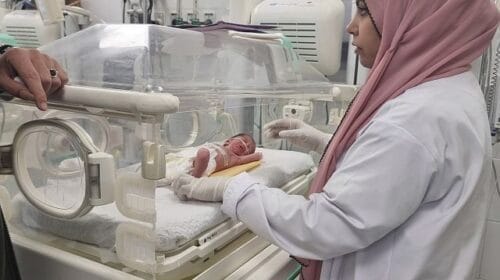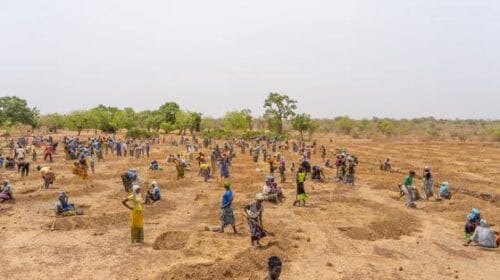Malawi: Forcing students to cultivate teachers’ private farmlands must stop!
By Janet Karim
6 “If anyone causes one of these little ones who believe in me to sin, it would be better for him if a large millstone were hung around his neck and he were drowned at the bottom of the sea. 18:6
A report surfaced on social media that a primary school teacher has been asking his students to work on his or her private farmland. The reaction in my social media group was one of disgust and disbelief. Some people thought as if this was happening in the next district, in the US; so he can be excused for thinking the parents could do something about the abuse of their children in the school system. And when someone likened the audacious teacher’s act to Youth Week during Kamuzu Banda 31-year rule, many jumped in to say, the activities for Youth Week were for community development and not for personal gain.
It is regrettable that when one uses a long-lens look at school life in the country, there are many abuses that students are having to endure; the culprits are not teachers, even from the head of institutions, there is a lot of goings on. This begs the question: who is benefiting from education in Malawi? The students, along with their parents, the majority of whom are rural-based are being manipulated, cheated, and taken advantage of; this is without the sexual abuse of female students by male teachers.
In a video clip that took the rounds in social media, a keen interviewer asked about ten primary school students what they were doing, ploughing a farm, and on behalf of whom they were doing the farming. The responses from all the children, in standard four, were that they were ploughing the garden for their teacher. The children reported that when a student fails to do his or her work for the day then on the next day, the punishment for truancy was harsh like cleaning toilets or digging holes for one, or building fences; in other words, hard labor. To add insult to injury, all the students were commanded to bring their own hoes.
When someone in our group tried to defend that the food produced is used in the school-feeding program, the argument was shot down as an inhumane form of child labor. My fellow groupie R. said no one can put a justification label on child labor, even if it was to produce food for them to eat or not. She also shot down as a fallacy that the schools feed the children, since the activity was not being carried out in the school farm lands; she said that there were also projects that deal with the school gardens; and they do not use children in the food production.
R. reported that he participated in youth week when “we were primary school and below 13 years then it was child labor.” F. added that as students the school had demonstration plots in standard 6 where we used to learn about “box ridging, border effects in a garden,” and said that this was part of the learning process and did not fit in with what is happening in the video. B’s reaction to the fingers pointing to Youth Week, citing that the work during those years were “community work” and that no one was ever asked to go and do chores for a teacher’s house during Youth Week. And kids would be asked to sweep and pick up trash and not farming.
As a participating Youth Week student, I remembered very clearly that the Government was always painstakingly making arrangements to provide all that was needed for the projects. The Government used the military in the distribution of the implements for the development works. But the abusive teacher has gone way beyond abuse! He demanded that each student bring his or her own hoe. Thus, if there are 40 students, Teacher X has access to free 40 hoes for his farm garden.
R. then threw in a lament that “it is disappointing that we tend to follow western policies more than our own policies. Schools in the west have funds to pay for these projects, we do not. So what we do, we do these projects ourselves. Since the students are children, doing it themselves, it is categorized as child labor. No…. It is perfectly fine and acceptable, and can’t be prosecuted for. That’s my view!”
B. disagreed, saying it is “not acceptable even in our society to use students for private work at a teacher’s farm; he gets paid and yet he is using kids to do free labor in his garden! This is 2023. It also is not about following foreign policies.”
In reaction to R and B, as a scholar in Nyasaland (the name Malawi was known when I was in primary school in the 1950s), troublesome students were given ugly and unhealthy tasks like cleaning the toilets or digging a hole for one. This teacher has carried 2023 Malawi students to the 1950’s school punishment systems!
I am concerned with the leadership in the school. Where is the headmaster/headmistress? There can’t be that many students cultivating a teacher’s farmland without him or her knowing about the scam. Parents appear to be disempowered. Working without pay was called slavery in the Americas and thangata during colonialism in Malawi. Both are vile forms of abuse.
To Malawians who believe it is ok to engage in this free child labor, they should take note that the UN spent many years to scrap out child labor. On the UN child labor, child marriage and other policies, Malawi is party to these, and our diplomats are in the negotiating rooms, putting our views and values into the policies.
I asked the Ministry of Education if it was aware. The ministry through its public relations officer Mphatso Nkuonera, said the ministry has launched an investigation on the matter. Nkuonera also said that it will act on the results.



